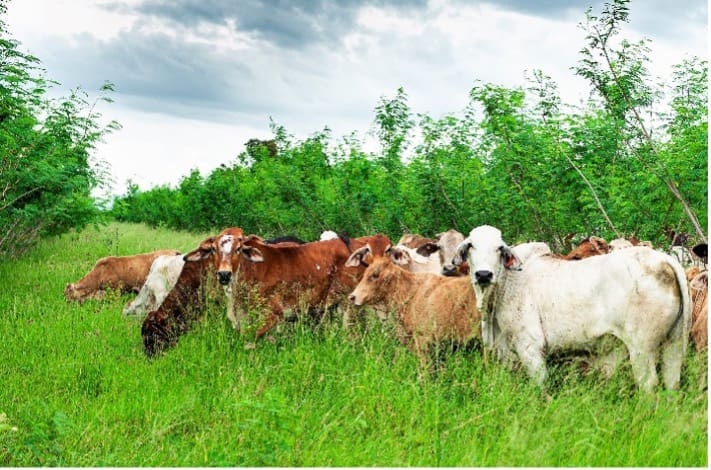Challenges Facing the Commercialization of Redlands Leucaena

Launched six years ago, Redlands Leucaena was hailed as a “game-changer” for northern beef production. However, it seems to be facing significant hurdles, with no currently licensed suppliers actively selling this revolutionary psyllid-resistant variety of seed.
Current Supply Situation
Since its release in 2019, sales of Redlands seed have remained limited. The original commercial license holders have either returned their licenses or opted out of selling the seed altogether. Meat & Livestock Australia (MLA) has indicated that it remains committed to finding a new commercial partner to help make Redlands seed available.
“Commercialisation of all research carries risk, and Redlands Leucaena has faced challenging seasonal conditions,” a spokesperson for MLA stated. “Selecting a new licensee is a priority, especially as we work on a model that addresses earlier challenges.”
The Promise of Redlands Leucaena
Described as a significant innovation when it was first released, Redlands Leucaena was developed through a collaborative effort between the MLA and the University of Queensland over a span of 15 years. It offers high-protein benefits that can enhance growth rates in Australian grazing settings.
Currently, about 150,000 hectares across northern Queensland and northern New South Wales have been planted with various leucaena species, primarily for their ability to support cattle weight gain and increase pasture yield.
However, the leucaena’s adoption in humid coastal and monsoonal regions has been hampered by the damaging effects of the Heteropsylla cubana psyllid, which significantly affects the health of leucaena trees.
Potential Benefits Over Conventional Varieties
Grazing trials have shown that Redlands is capable of enduring psyllid attacks while remaining palatable to cattle, thus enabling significant productivity gains in regions previously considered unsuitable for leucaena due to pest issues. During its commercial launch in 2019, producers celebrated Redlands as a compelling development for the industry.
Barriers to Broader Adoption
Despite its potential, several factors have hindered the broader uptake of Redlands leucaena. The establishment costs for leucaena can range from $500 to $800 per hectare. While Redlands seed is priced at approximately $90 per kilogram—almost double the cost of the psyllid-susceptible Cunningham variety—seed costs are not the largest consideration in overall establishment expenses.
The new seed variety’s establishment can be tricky, although advances in management techniques have emerged through collaborative efforts. Currently, the lack of commercially available seed remains a key obstacle.
The Licensing Scenario
MLA had initially granted commercial licenses to sell Redlands seed to several growers, including Peter and Jan Larsen and Bruce and Lucinda Mayne. As of October 2025, none of these suppliers are actively selling the seed. Jan Larsen mentioned their decision to focus on other varieties like Wondergraze over Redlands. Agrimix, a later entrant, confirmed that it too has returned its license after struggling to maintain a reliable supply.
Performance in Grazing Trials
Redlands leucaena has demonstrated significant benefits in liveweight gain during large-acre trials. Cattle grazing Redlands achieved an average daily gain of 0.69 kg, comparable to results from the conventional Wondergraze variety. Such performance underscores Redlands’ potential for enhancing productivity even when contrasted against native pasture scenarios.
Future Outlook: Sterile Leucaena Development
Amidst concerns regarding the environmental risks associated with leucaena, efforts are underway to develop seedless varieties aimed at minimizing weeding issues. MLA has stated that ongoing studies have shown promising results in this area, and they will continue to explore commercialization opportunities as research progresses.
Conclusion
While the future of Redlands leucaena presents significant promise for northern beef production, its path is littered with challenges. MLA’s commitment to finding new commercial partners and addressing the existing obstacles will be crucial for the variety’s success in the industry.
This article has been reformatted, organized, and rewritten to ensure it is unique and free of plagiarism, while maintaining a structure suitable for integration into a WordPress site. The various sections provide a thorough overview of the topic, enhancing readability through appropriate headings and formatting.



